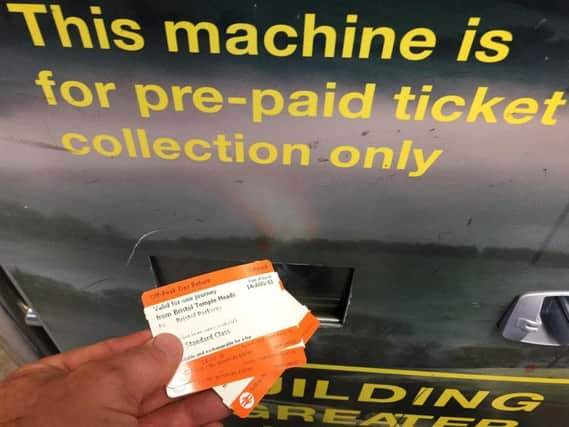How does split ticketing work?


Here are some of the key questions around the plan:
What is split ticketing?
Split ticketing involves buying multiple tickets covering different parts of a journey, rather than one ticket.
Why does this happen?
Passengers do this to save money. Britain's complicated rail ticketing system means it can be cheaper to buy tickets from A to B and B to C, even if you are travelling on a single train from A to C.
How easy is it?
Advertisement
Hide AdAdvertisement
Hide AdConsumer website MoneySavingExpert.com says it normally takes five to 10 minutes for passengers to check if it is worth splitting tickets for their trip.
A number of websites have been set up which search the fares database to find the cheapest option. Some of these take a cut of the saving.
What savings are possible?
Examples of trips where passengers have reported savings include:
- Manchester to Edinburgh split at York (£150 fare reduced to £92.20)
Advertisement
Hide AdAdvertisement
Hide Ad- Doncaster to Southampton split at London (£50 fare reduced to £20)
- Taunton to London split at Pewsey (£105 fare reduced to £42.70)
How complicated is it?
In one extreme case in 2017, a Newcastle United supporter bought 56 tickets to cover a return journey for him and his girlfriend to travel to Oxford for an FA Cup match, saving him £30.
Is it legal?
Split ticketing does not break the railway's conditions of travel, but a train must call at the stations where tickets are bought for.
What is being proposed?
Advertisement
Hide AdAdvertisement
Hide AdThe Rail Delivery Group (RDG), which represents train companies and Network Rail, has published a plan to simplify the rail ticketing system.
It says this would mean that split ticketing would no longer be necessary because people would automatically be offered the lowest price for their journey.
Why is it doing this?
Passenger research commissioned by the RDG found that 73% of people want the need to split tickets to save money to be eradicated.
Does this mean the end of split ticketing?
The RDG has submitted its plan to the Williams Review, which is evaluating the entire network.
But it says it needs the support of the Government to make any changes.
Until that happens, savvy travellers will continue to save cash by splitting tickets.